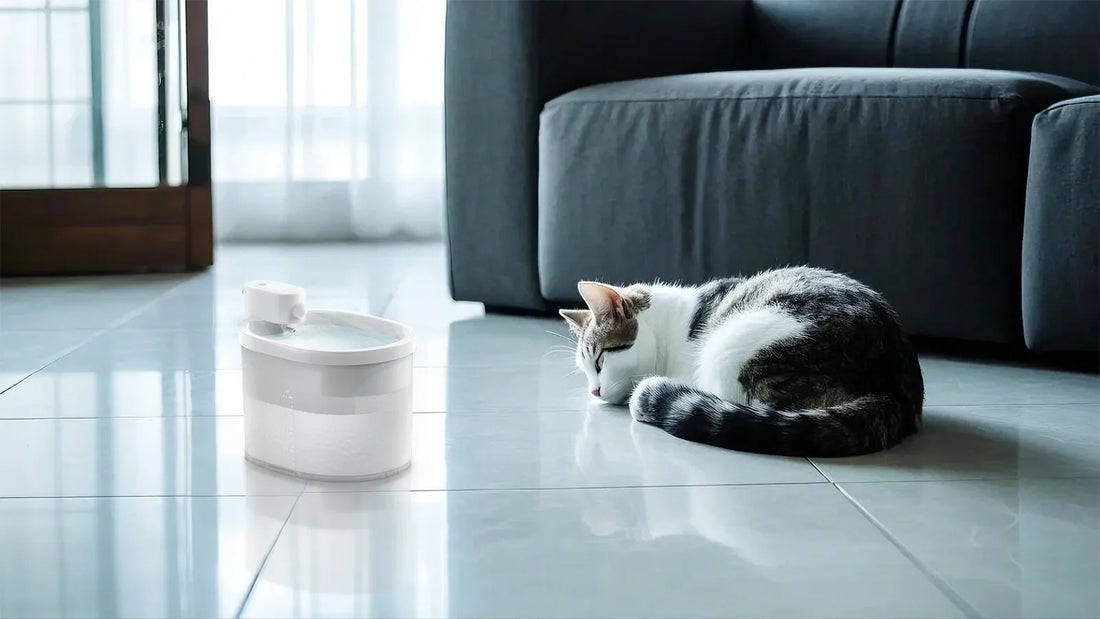If your dog is drinking too much water and peeing a lot, it’s natural to feel concerned. While occasional changes in behavior might not be alarming, persistent symptoms could indicate an underlying health issue. Understanding the causes and knowing when to seek veterinary care is crucial for your furry friend’s well-being.
Common Causes of Excessive Water Consumption in Dogs
There are several reasons why your dog might be drinking more water than usual. Some of the most common causes include:
- Dehydration: Dogs may drink excessively to compensate for fluid loss, especially in hot weather or after exercise.
- Dietary Changes: A high-salt diet can increase thirst, leading to more water intake.
- Medications: Certain medications, such as steroids, can cause increased thirst as a side effect.
- Underlying Medical Conditions: Conditions like diabetes, kidney disease, or Cushing’s syndrome can lead to excessive drinking and urination.
Signs Your Dog Is Drinking Too Much Water
It’s important to monitor your dog’s behavior to determine if their water intake is excessive. Signs to watch for include:
- Frequent trips to the water bowl
- Urinating more often or in larger amounts
- Accidents in the house, even in house-trained dogs
- Lethargy or changes in appetite
Health Conditions Linked to Excessive Drinking and Peeing
If your dog is drinking too much water and peeing a lot, it could be a symptom of a more serious health issue. Some conditions to be aware of include:
Diabetes
Diabetes in dogs can cause increased thirst and urination due to high blood sugar levels. Other symptoms may include weight loss, increased appetite, and fatigue.
Kidney Disease
Kidney disease impairs the kidneys’ ability to concentrate urine, leading to frequent urination and increased water intake to compensate.
Cushing’s Syndrome
This condition occurs when the body produces too much cortisol, leading to symptoms like excessive thirst, frequent urination, and a pot-bellied appearance.
Urinary Tract Infections (UTIs)
UTIs can cause discomfort and increase the urge to urinate, leading to more frequent trips outside or accidents indoors.
When to See a Veterinarian
If your dog’s excessive drinking and peeing persist for more than a day or two, it’s essential to consult a veterinarian. They can perform diagnostic tests to determine the underlying cause and recommend appropriate treatment. Early intervention can prevent complications and improve your dog’s quality of life.
How to Manage Your Dog’s Water Intake
While it’s important to address the root cause of excessive drinking, there are steps you can take to manage your dog’s water intake:
- Provide fresh, clean water at all times, but monitor the amount consumed.
- Avoid feeding your dog salty foods or treats.
- Ensure your dog gets regular exercise to maintain overall health.
- Follow your veterinarian’s advice regarding diet and medication.
Preventing Dehydration and Overhydration
Both dehydration and overhydration can be harmful to your dog. To prevent these issues:
- Monitor your dog’s water intake, especially during hot weather or after physical activity.
- Provide access to shade and cool areas to prevent overheating.
- Be cautious with water play, as dogs can accidentally ingest too much water while swimming or playing in pools.
Understanding Your Dog’s Normal Behavior
Every dog is unique, and their water needs can vary based on factors like size, age, and activity level. Familiarize yourself with your dog’s normal drinking and urination habits so you can quickly identify any changes. Keeping a journal of their behavior can help you spot patterns and provide valuable information to your veterinarian.
Supporting Your Dog’s Health and Well-Being
If your dog is drinking too much water and peeing a lot, it’s essential to take action. By understanding the potential causes and seeking veterinary care when needed, you can ensure your dog stays healthy and happy. Remember, early detection and intervention are key to managing any underlying health issues.
Don’t ignore the signs—your dog’s excessive thirst and urination could be a cry for help. Stay vigilant, consult your veterinarian, and take proactive steps to support your furry companion’s health. Your dog’s well-being is worth it!













